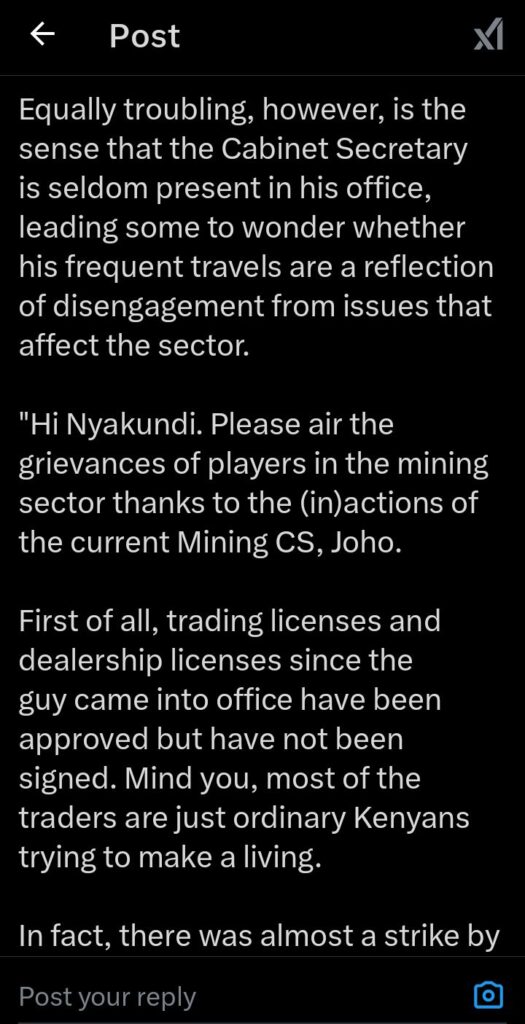The mining sector in Kenya is facing challenges, with traders and dealers expressing frustration over the apparent neglect by Cabinet Secretary for Mining, Ali Hassan Joho.
This discontent stems largely from delays in the issuance of trading and dealership licenses, which, though approved, remain unsigned.
Many in the industry, particularly small-scale traders who depend on these documents for their livelihoods, are caught in a precarious situation.

The delay in signing these licenses has sparked allegations of inefficiency and neglect within the ministry.
Reports suggest that the Cabinet Secretary has been ignoring advice from his team to finalize the process, a move that could have averted the growing dissatisfaction among stakeholders.
Joho’s refusal to act on these approvals may be driven by motives that are not aligned with public service, with some claiming the issue involves demands for “facilitation fees.”
The frustration among traders nearly led to a strike in November and December last year.
However, this action was called off, leaving many wondering whether their concerns would ever be addressed.
The delays have had a ripple effect on the sector, further burdening ordinary Kenyans struggling to make ends meet in an already challenging economic climate.
Critics also point to Joho’s apparent disengagement from his duties.
Allegations that he is frequently absent from his office, either traveling or unavailable, have added to the perception that he is disconnected from the pressing issues affecting the industry.
Even when present, insiders claim he does little to address the backlog of work, leaving traders and dealers in a state of limbo.
Cyprian Nyakundi, a well-known critic of government inefficiency, has highlighted these grievances on his platform, amplifying the voices of those affected.

According to an anonymous source quoted by Nyakundi, Joho’s lack of action could be linked to personal interests, with suggestions that delays in signing the licenses may involve financial demands.
The source also lamented the Cabinet Secretary’s reluctance to listen to advice, describing it as a blatant disregard for the welfare of Kenyans.
This situation reflects a broader problem of poor governance and lack of accountability in public offices.
For a sector as vital as mining, which has the potential to significantly contribute to the economy, such inefficiencies and allegations of corruption are not only disappointing but also detrimental to its growth.
Ordinary traders, who rely on timely approvals to sustain their businesses, are being forced to bear the brunt of leadership failures.
Unless immediate action is taken to address these concerns, the mining sector risks further decline.
Stakeholders are calling for transparency, accountability, and decisive action to restore confidence in the ministry.
It remains to be seen whether Joho will rise to the occasion and resolve the issues or continue to attract criticism for his handling of the sector.





















Add Comment